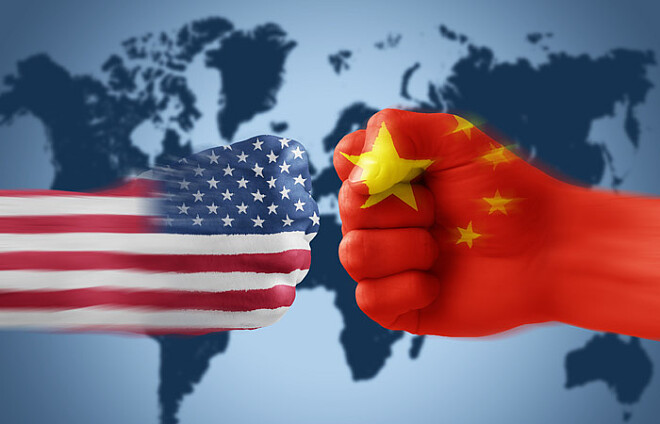Chinese trade tensions worry U.S. agriculture

There is plenty of handwringing in the U.S. agriculture sector about its tenuous trade relationship with China.
That was the theme of a recent webinar hosted by the Council on Food, Agricultural and Resource Economics.
Holly Wang, agricultural economist at Michigan State University, said China has been the largest market for U.S. agriculture for most of the past decade.
However, political tensions between the two countries has been growing, which has hampered trade.
U.S. agricultural exports to China in 2024 are forecast to be down by more than US$1 billion from 2023 levels, primarily due to stiff soybean competition from Brazil.
However, there are other factors at work, such as the strong U.S. dollar, China’s slumping economy and rising political tensions between the two adversaries, she said.
One source of those tensions is the perception that China is buying up huge tracts of agricultural land in the United States.
Wendong Zhang, assistant professor at the Charles H. Dyson School of Applied Economics and Management, said that one is a bit of a red herring.
China ranks 18th on the list of foreign country ownership of U.S. farmland.
Canada tops the list with more than 12 million acres. That compares to the 352,140 acres owned by Chinese investors, which is less than one percent of all foreign ownership.
“There are overall suspicions of China taking vast amounts of farmland from the U.S. and that is probably not warranted based on the data,” he said.
It is just one factor in the mounting trade tensions between the U.S. and China that many fear could result in another trade war between the two countries.
The American Soybean Association and National Corn Growers Association recently released a study forecasting that U.S. soybean exports to China could fall about 15 million tonnes annually if that happened. Corn exports would drop by an estimated 2.2 million tonnes.
Shawn Arita, senior economist in the U.S. Department of Agriculture’s Office of the Chief Economist, said the U.S. agriculture sector suffered a loss of more than $27 billion during the last trade war between the two countries in 2018-19.
That was eventually offset by $28 billion in government aid, but it was a traumatic couple of years for growers.

“U.S. soybean futures dropped from about $11 per bushel to about $8.50,” he said.
Brazil’s soybeans traded at a $2.50 per bu. premium over U.S. soybeans at times during the two-year spat.
It was particularly hard on farmers in North Dakota and South Dakota who rely on trade with China through ports in the Pacific Northwest.
“It led to a severe weakening of the basis with local cash soybean prices in North Dakota falling as low as $6 per bu.,” said Arita.
The fall in soybean exports to China was partially offset by increases to markets such as the European Union, Argentina and Egypt. However, total exports still plummeted 13.5 million tonnes in 2018-19 compared to the previous year.
Arita said the trade war’s long-term implications are that the U.S. has permanently ceded market share in China to Brazil.
The two countries were each exporting about 60 million tonnes of soybeans to customers around the world before the trade war.
In 2024-25, the USDA is forecasting that the U.S. will export 50 million tonnes of the oilseed compared to 105 million tonnes for Brazil.
“Our exports have lost significant ground to our main competitor,” said Arita.
And it’s only going to get worse. By 2032-33, the totals are expected to reach 58 million tonnes for the U.S. and 133 million tonnes for Brazil.
Arita warned that China’s retaliatory tariffs on soybeans and other agricultural products are still on the books but are not being applied due to waivers.
“At any time, China could stop granting those waivers,” he said.
For almost 30 years of expertise in the agri markets, UkrAgroConsult has accumulated an extensive database, which became the basis of the platform AgriSupp.
It is a multi-functional online platform with market intelligence for grains and oilseeds that enables to get access to daily operational information on the Black Sea & Danube markets, analytical reports, historical data.
You are welcome to get a 7-day free demo access!!!
Read also
Abbey Commodities – General Partner of BLACK SEA GRAIN.KYIV-2026
Black Sea & Danube Barley Market at a Turning Point: Demand Pressure and Regi...
Rapeseed market focuses on new crop
China has not yet allowed the import of peas from Ukraine, but has increased suppl...
Canadian grain and oilseed exports to the EU could be suspended due to pesticide r...
Write to us
Our manager will contact you soon



